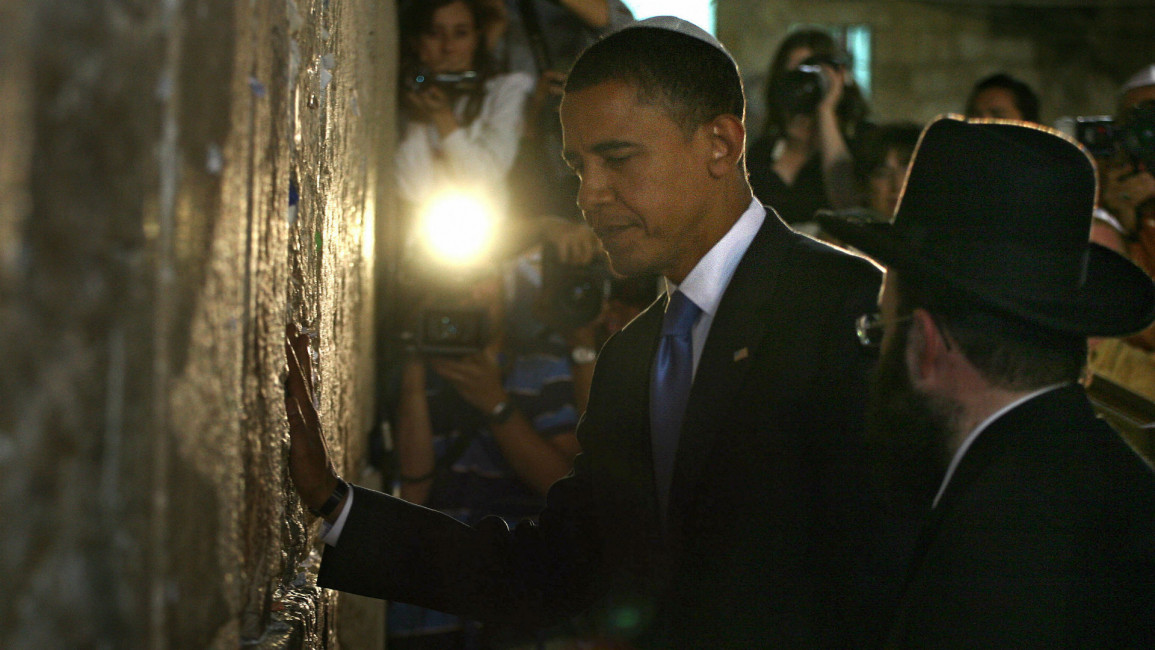
Obama's clash of civilisations
In 1881, the British journalist Edward Dicey wrote of the great democratic revolt in Egypt, led by Ahmed 'Urabi against the British Empire and its puppet regime of the Khedivate:
"In Egypt - as, for that matter, in any Mussulman country -parliamentary government is an impossibility, as incomprehensible to the Oriental mind as the differential calculus would be to a ploughboy."
This racist cognitive dissonance was generally accepted among the British political class at the time. They would say the "Mussulmans" were not capable of ruling themselves, while they were actively crushing and working against the very movements, such as the 'Urabi revolt, that were demanding democracy.
What they really meant was that the liberty of "Mussulmans" must always be subordinated to British commercial, poltical and military interests.
But one need not look back into the mists of time to find this viewpoint - it's alive and well in the world today in the words and deeds of Barack Obama.
In an interview with The Atlantic's Jeffrey Goldberg, Obama made the following comments regarding "the Middle East":
"You have countries that are failing to provide prosperity and opportunity for their people. You've got extremist… ideologies. You've got countries that have few civic traditions, so as autocratic regimes start fraying, the only organising principles are sectarian.
"Contrast that with Southeast Asia, which still has huge problems… but is filled with… ambitious, energetic people who are every single day clawing to build businesses… and build infrastructure - they're not thinking about how to kill Americans… What they're thinking about is 'how do I get a job?'"
Obama might not use archaic terms such as "Mussulman" or explicitly appeal to concepts such as "the Oriental mind", but his statement at its core contains the very same fallacious malice as Dicey's.
Obama isn't speaking as some neutral, powerless observer - he's speaking as the most powerful political leader on Earth. He starts off by pointing out that many countries in the Middle East are "failing to provide prosperity and opportunity for their people", but he leaves out one important fact: his administration materially supports the governments of those countries.
In fact, he supports them within the specific context of mass democratic uprisings against them.
He has the gall to talk about how, when "autocracy" crumbles in the region, the lack of "civic traditions" means that they tend to organise along sectarian lines. But it was his administration that supported the brutally sectarian Sunni-minority rulers of the al-Khalifa dynasty in Bahrain, as it crushed an anti-sectarian revolt led by the Shia majority but also including marginalised Sunni and secular political forces.
It's also his administration that provides "logistical support" to the brutal intervention of the Saudi autocracy in Yemen.
 |
[In Obama's imperialist view] liberty and human rights are subordinated to 'security' |  |
The fact that Obama understands that sectarianism is bred and made concrete by the stifling effects of autocracy only makes his support for sectarian autocracies against democracy even more pernicious.
This in turn makes his contrast between the allegedly inherently sectarian Middle Easterners - who, in Obama's mind, sit around and obsess over "how to kill Americans" - with the go-getting "Southeast Asians" all the more risible.
It also demonstrates another key component of his imperialist view of the region, one in which liberty and human rights are subordinated to "security". One where the entire region is seen through the lens of fighting the Islamic State group, something which is as tautologically absurd as Obama's previous cognitive dissonance on sectarianism; the two are of course interrelated.
The US is complicit in the rise of IS in several ways, with the Obama administration directly responsible for some aspects of its emergence. Continuous with the role the Bush regime played in allowing the forces that would become IS to gain a foothold in Iraq in the first place was the manner in which Obama took up mindlessly sponsoring the regime of Nouri al-Maliki.
It was his sectarian policies that provided IS with the perfect breeding ground of alienated Sunni communities.
It was Obama who actively backed Maliki's subversion of democracy when the explicitly anti-sectarian al-Iraqiya party won the 2010 election.
Then there was the Iraqi Spring - non-violent, anti-sectarian protests crushed by Maliki on a sectarian basis, culminating in the Hawija massacre, something which directly led to the militarisation of the previously peaceful protests and the resurgence of IS.
Throughout all of this, Obama supported Maliki. He supported, whether he likes it or not, no matter the justification, sectarianism, as he continues to do by providing support to the savagely sectarian Popular Mobilisation Militias.
Yet he has the audacity to speak of sectarianism in the region passively - as if it's an inevitability in which he has absolutely no role.
Then there was the sectarian slaughter in Syria, where IS had found an unprecedented material logic. One of the key reasons for this was not, as Obama believes, because Syrians collapsed into sectarianism, but rather because concretely anti-sectarian forces were viciously assailed by the counter-revolution of Assad, Iran and Russia - which in turn engendered the rise of IS.
When these non-sectarian, democratic rebels launched an offensive against IS, they did so partly to advertise the fact that they existed and ought to be supported by the US against such dangerous adversaries. But Obama wasn't interested.
 |
This is an administration that infamously called Sisi's brutal counter-revolution in Egypt 'progress' |  |
As the offensive stalled due to the rebels being caught between fighting IS and Assad, the US watched and did nothing, as rebel-held areas were overran by IS and fighters forced back by the greater savagery of Assad.
Here were rebels who did not merely dream of, but actively struggled for "prosperity" and "opportunity", yet Obama sneeringly dismissed them. This is an administration that infamously called Sisi's brutal counter-revolution in Egypt "progress".
Obama's comments are nothing more than the self-justification of an arrogant imperialist who has presided over and/or materially aided - from Cairo to Manama - the triumph of vicious sectarian counter-revolution in a region that is crying out for change and for the necessary aid to bring down the old autocratic order.
Obama's policy and comments prove the reality that the US, as with any other self-interested imperialist force, might have the means to aid democratic voices but doesn't possess the ideological will to do so.
It's Obama, and not the agents of Arab revolution - who have again taken to the streets in Syria, protesting against Assad, IS and al-Qaeda, and chanting anti-sectarian slogans - who can't envision a region free from sectarianism and autocracy.
It's sectarian autocracy that has traditionally been the US' most valuable ally in the region. Obama is firmly on its side, no matter his pretensions otherwise.
Opinions expressed in this article remain those of the author and do not necessarily represent those of The New Arab, its editorial board or staff.




